View the comic here or scroll down below.
As part of a series of six comics on public authority in different countries across Africa, comic artist Didier Kassi has illustrated some of CPAID's cutting-edge research on issues of public authority, conservation, justice and livelihoods in eastern Democratic Republic of the Congo (DRC). Based on real events, the comic depicts how people living near national parks struggle to earn a livelihood faced with crop destruction by wildlife, armed conflict and competition between different authorities, including park rangers and rebel groups.
Research on conservation, livelihoods and public authority
The cartoon, Making Ends Meet around Virunga, is based on results from a collaborative research project where six researchers worked together to capture the perspectives and lived experiences of people living around Virunga National Park. One of the oldest national parks in Africa, Virunga has drawn worldwide media attention due to its extraordinary biodiversity and charismatic mountain gorillas, but also due to the extreme challenges it faces; over two decades of protracted violent conflict, there is the continued presence of numerous rebel groups and the looming threat of oil exploitation. Focusing on the heroic park rangers who often sacrifice their life in the struggle for biodiversity, and development projects backed by donors and philanthropists, these media stories commonly portray the park as a beacon of ‘hope’ for eastern DRC.
During our field research in the area, however, we found that the people living around the park tell very different stories. They told us about their daily struggles for survival, and how these struggles are compounded by living next to the park. They also told us about their often conflictual relations with the park and how they fear the rangers.
Portraying diverse realities
These stories are rarely visible in international media reporting on the park, which generally focus on the wildlife and the rangers, but not the daily realities of people living close to the park. To portray these realities, as they emerged from our research, we found it useful to use a cartoon – as a visual tool. We also believe that not acknowledging the actual lived experiences of people around the park is detrimental for nature conservation, and can hamper efforts to stop deforestation and maintain the integrity of the park.
Certainly, a single story about a family (as featured in this cartoon) cannot represent all the diverse experiences people have. Yet the story presented here is based on recurring themes and testimonies in our interviews.
The power and artistic appeal of a cartoon can help disseminate knowledge outside the academy, illustrating research findings for a larger audience. As most of the communication about Virunga National Park is tailored towards (mostly anglophone) Western audiences, we also decided to publish the cartoon in French and Swahili. As there are currently many debates happening in eastern DRC about Virunga National Park, and the conflicts that surround it, we hope this work helps to link local and international debates about the park’s precious future.
Read the French version here.
Researchers: Judith Verweijen, Saidi Kubuya, Evariste Kahamba, Esther Marijnen, Janvier Murairi and Chrispin Mvano.
To find out more about the research, please see the literature below, upon request from the authors:
Verweijen, J., Kubuya, S., Mahamba, E., Marijnen, E., Murairi, J., & Mvano, C. (2020), Conflicts around Virunga National Park: Grassroots perspectives. The Hague: Knowledge Platform Security & Rule of Law.
Contact: Esther.Marijnen@UGent.be; j.verweijen@sheffield.ac.uk
For a more in-depth analysis of international media portrayals of the park, see here. More information about struggles for livelihoods and conflicts around the park can be found here and here, and see here for a discussion of the charcoal trade and conflict around public authority.
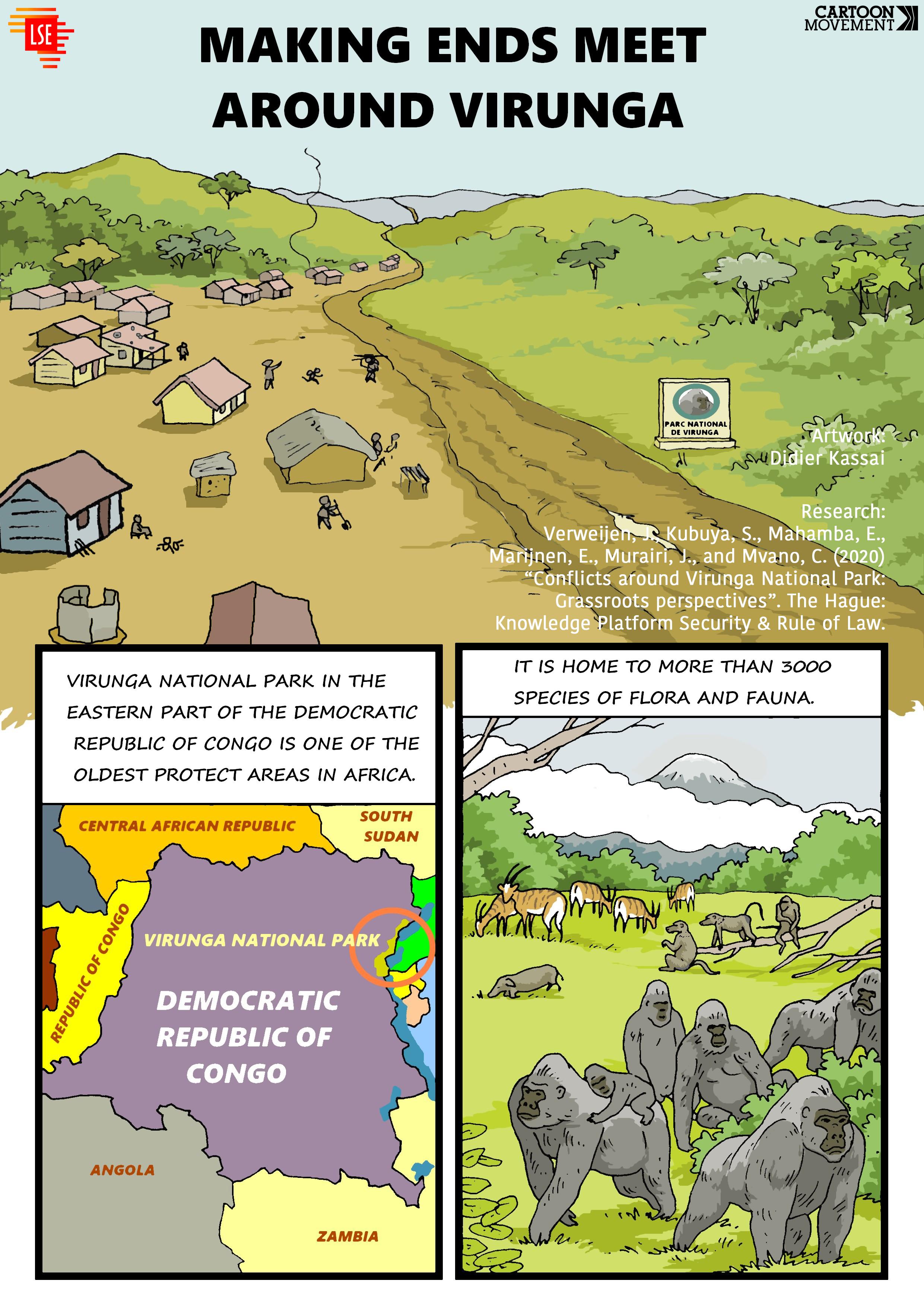
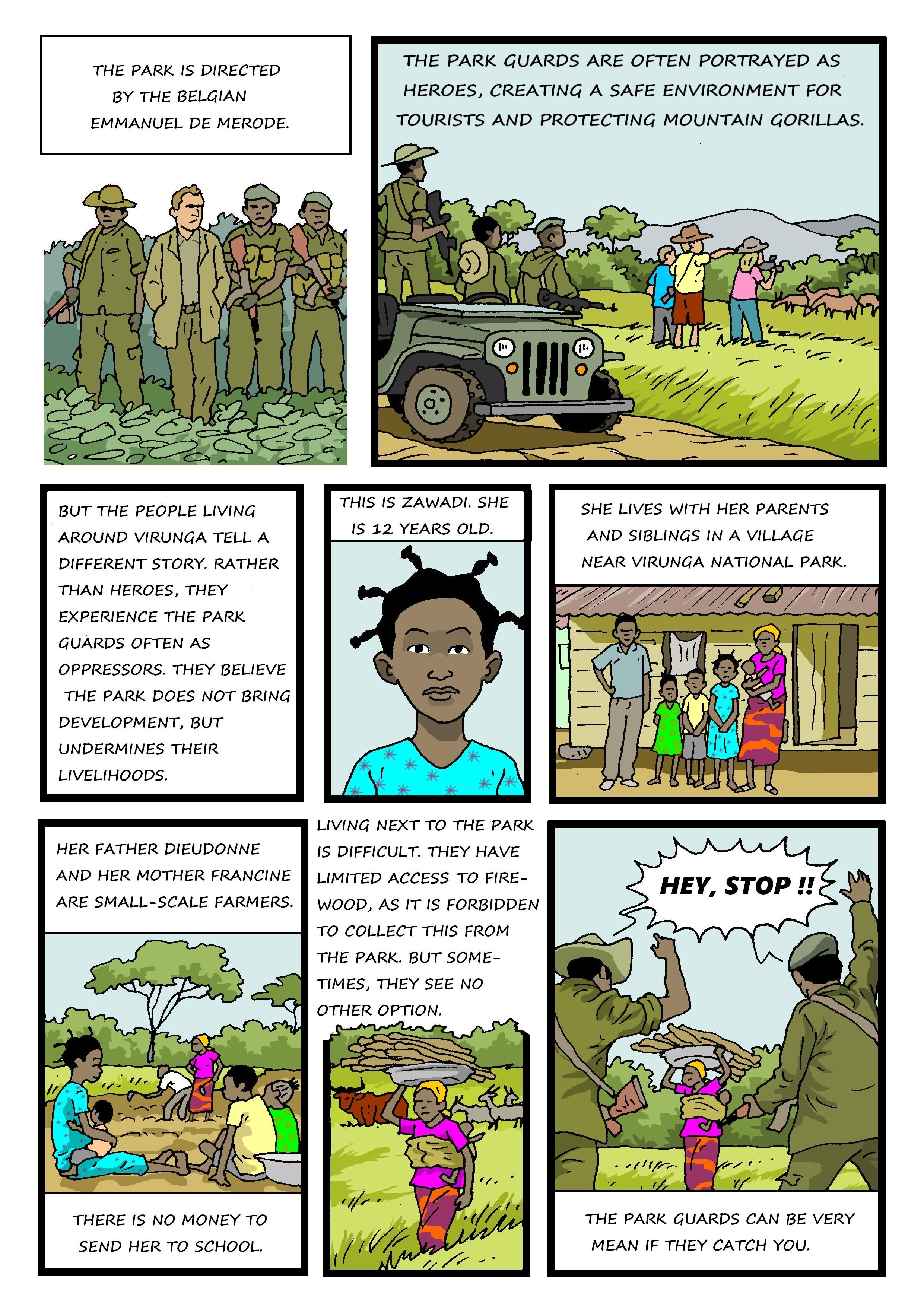
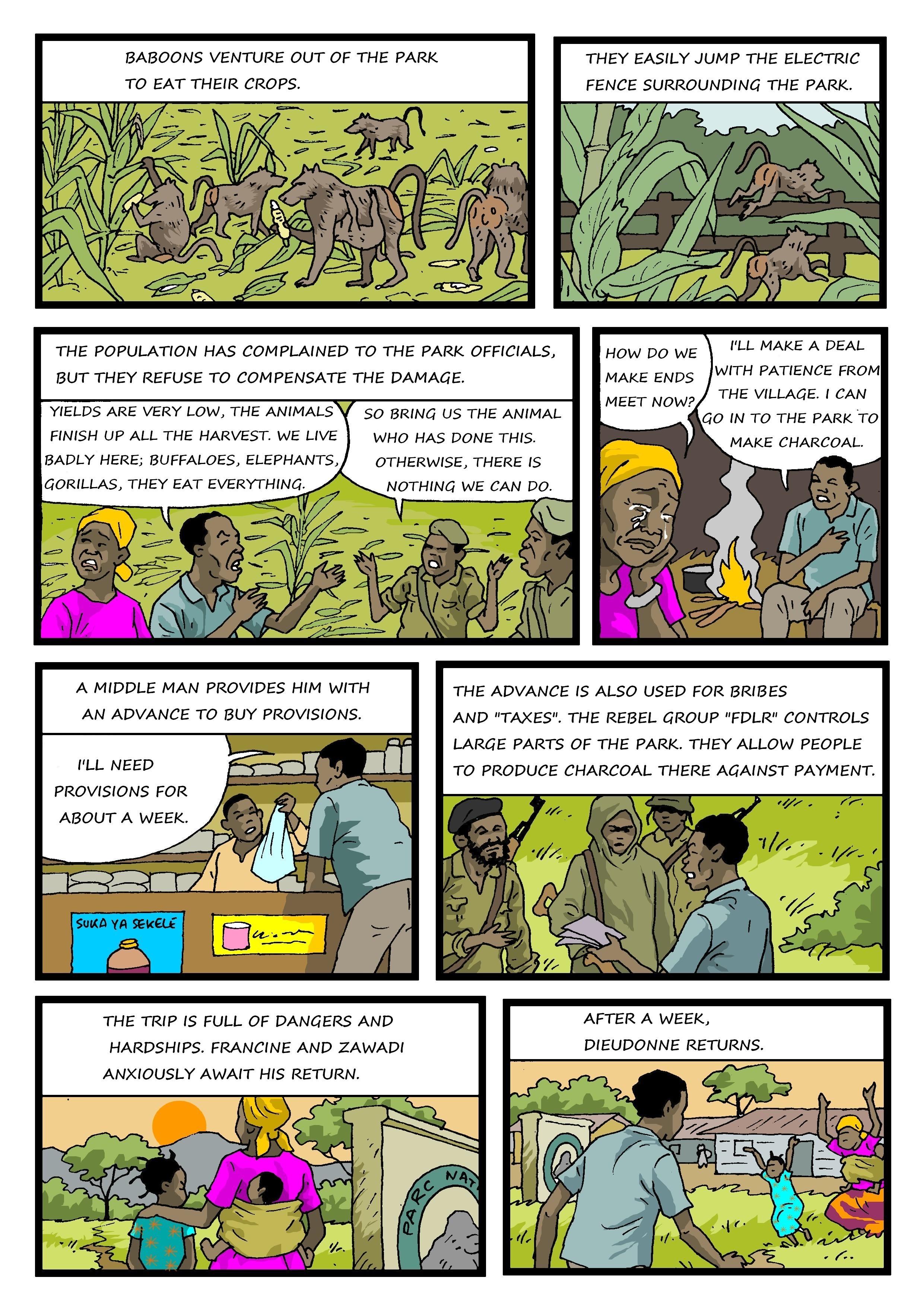
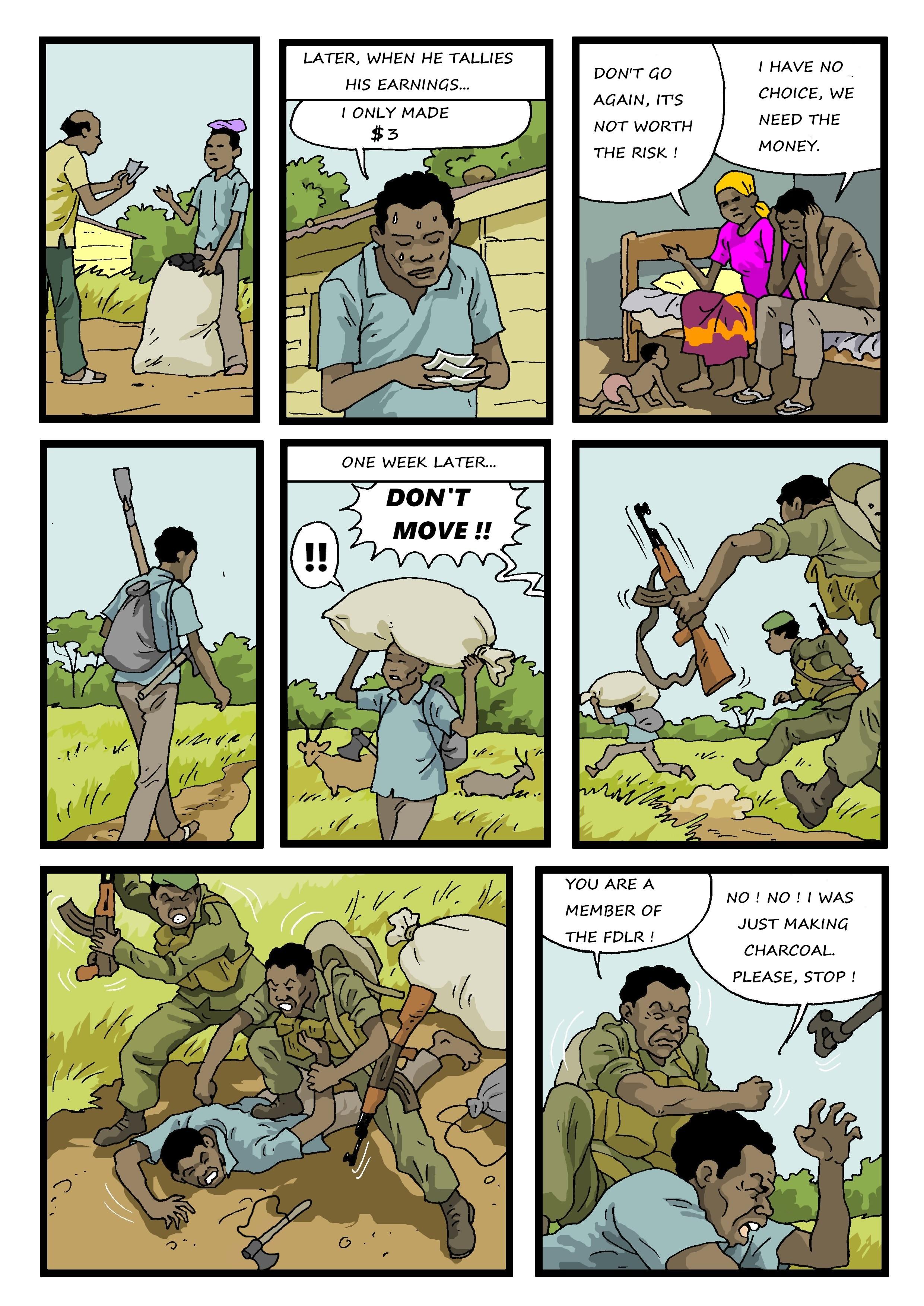
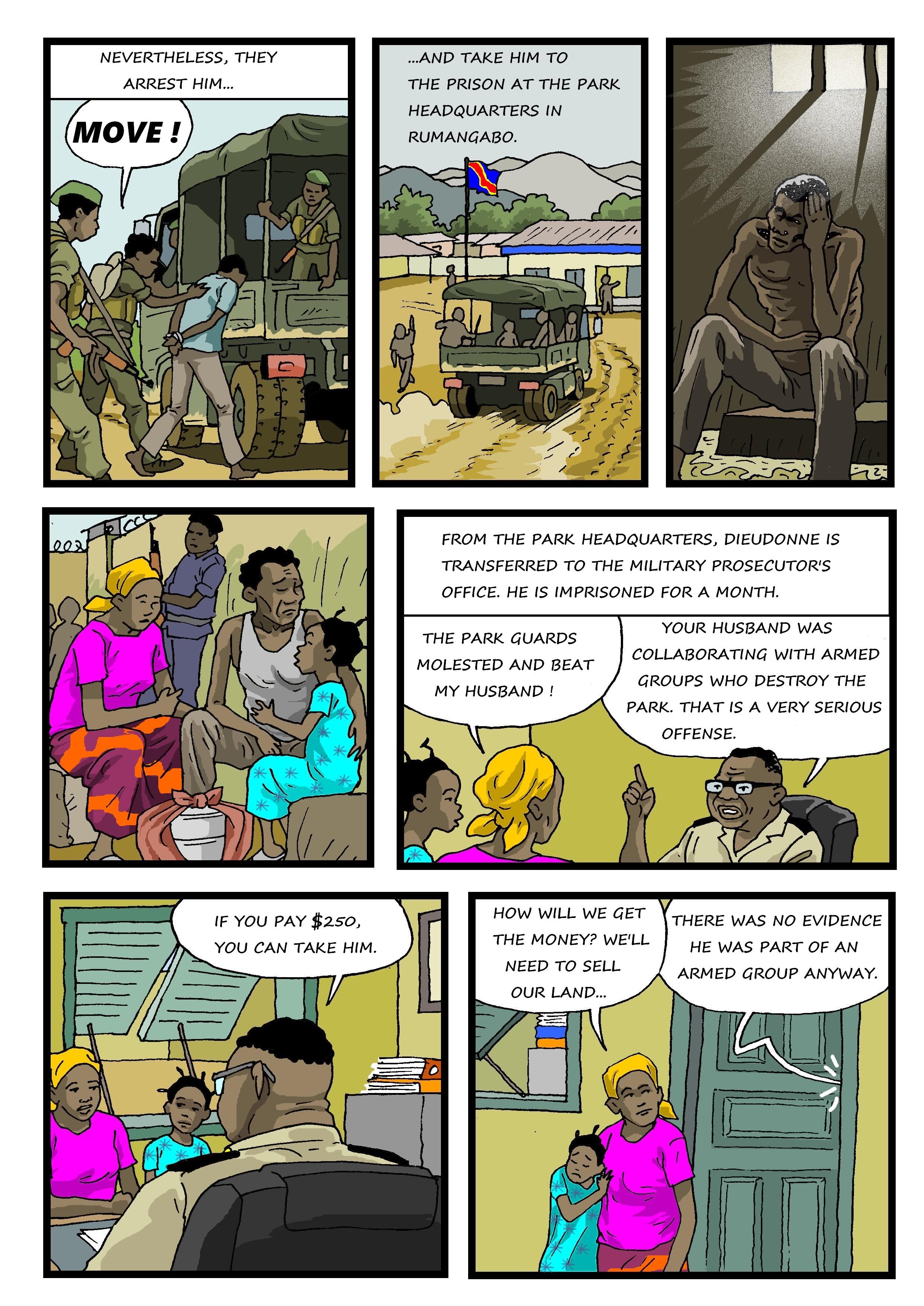
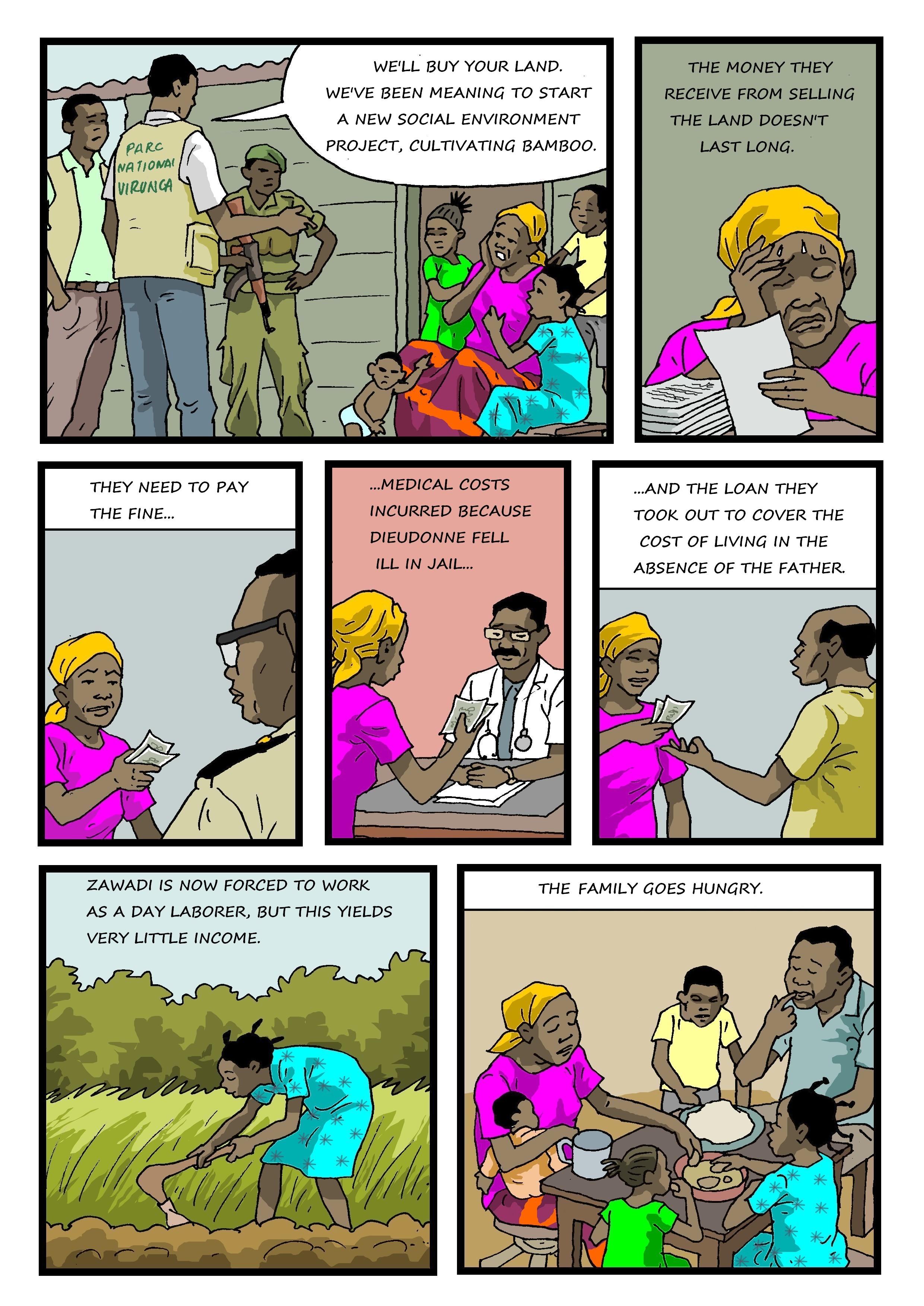
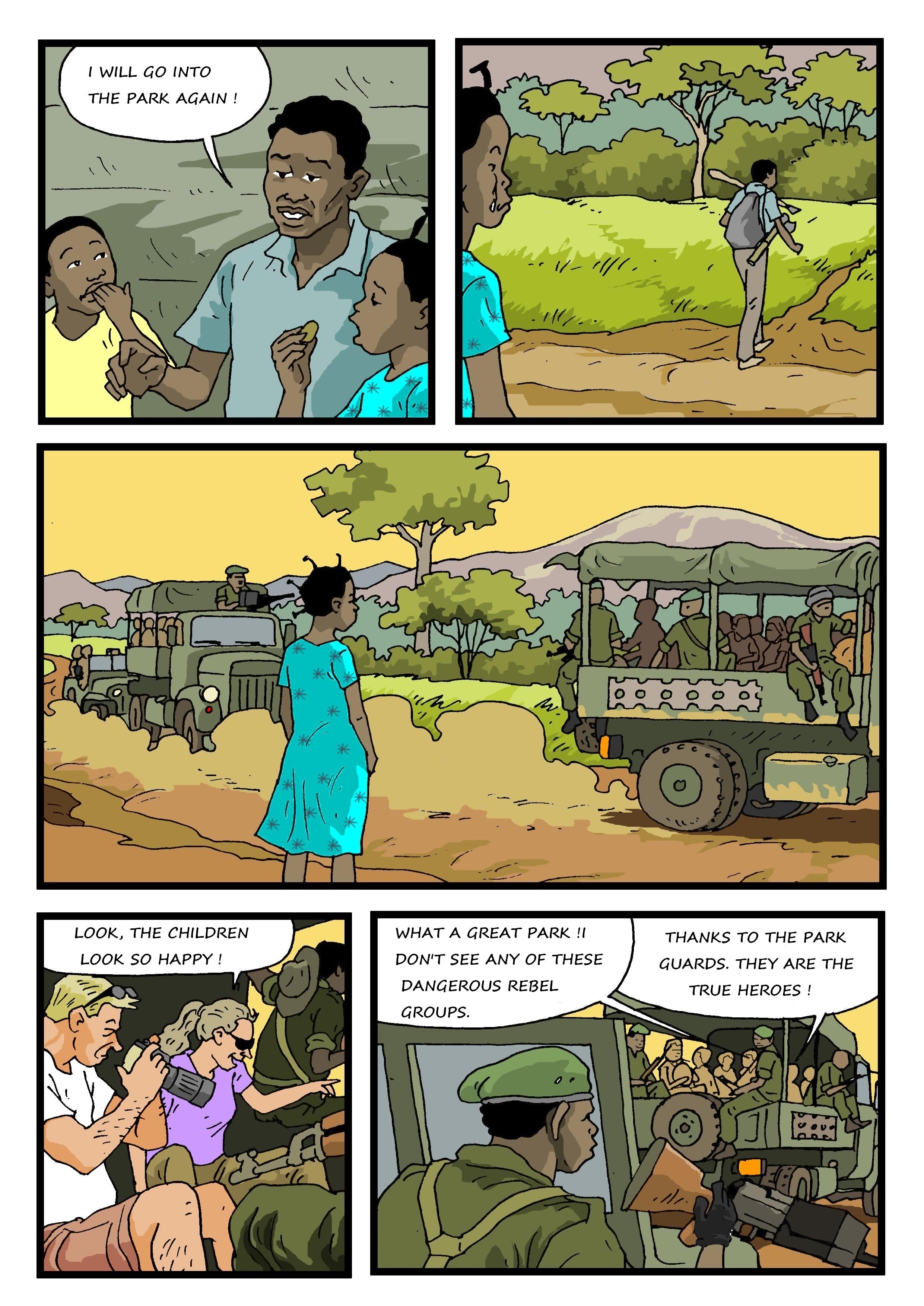
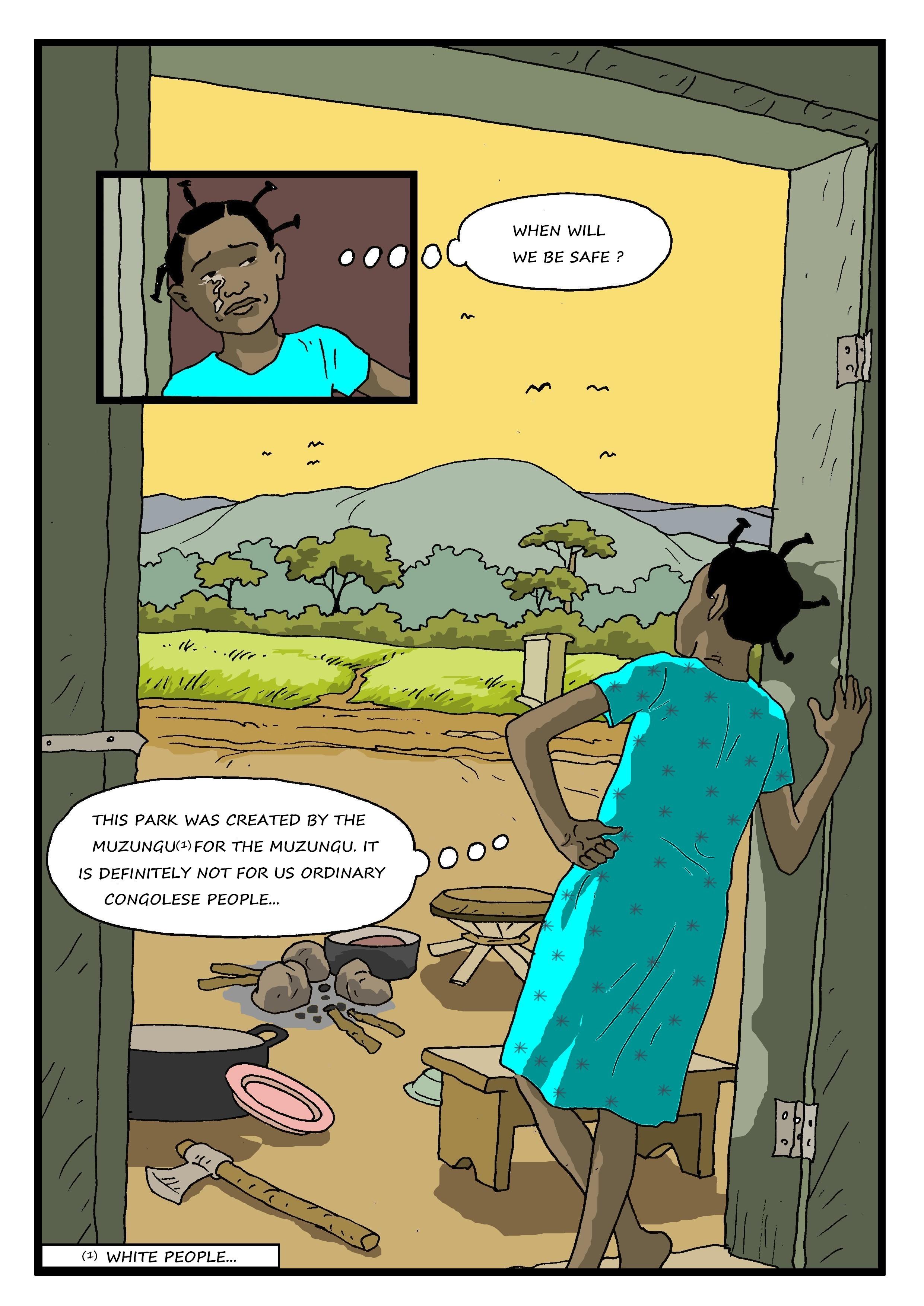
This comic was created by Cartoon Movement, a publishing platform for high quality editorial cartoons and comics journalism from all over the globe.